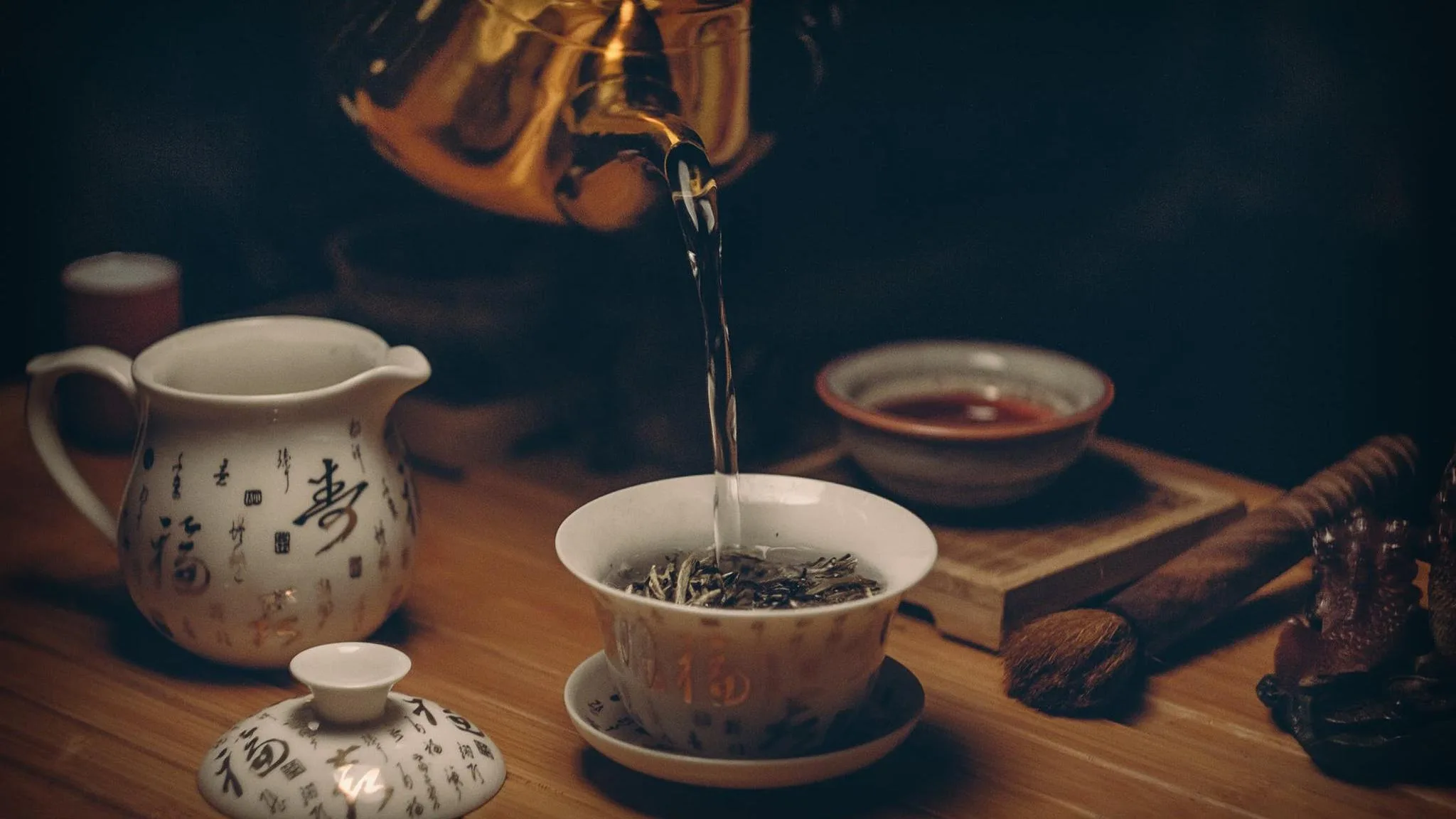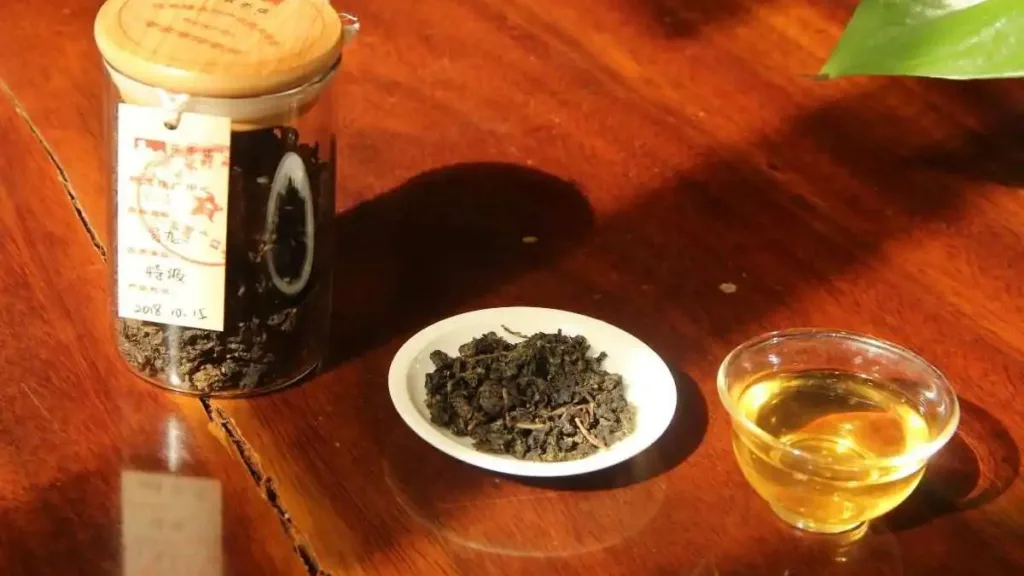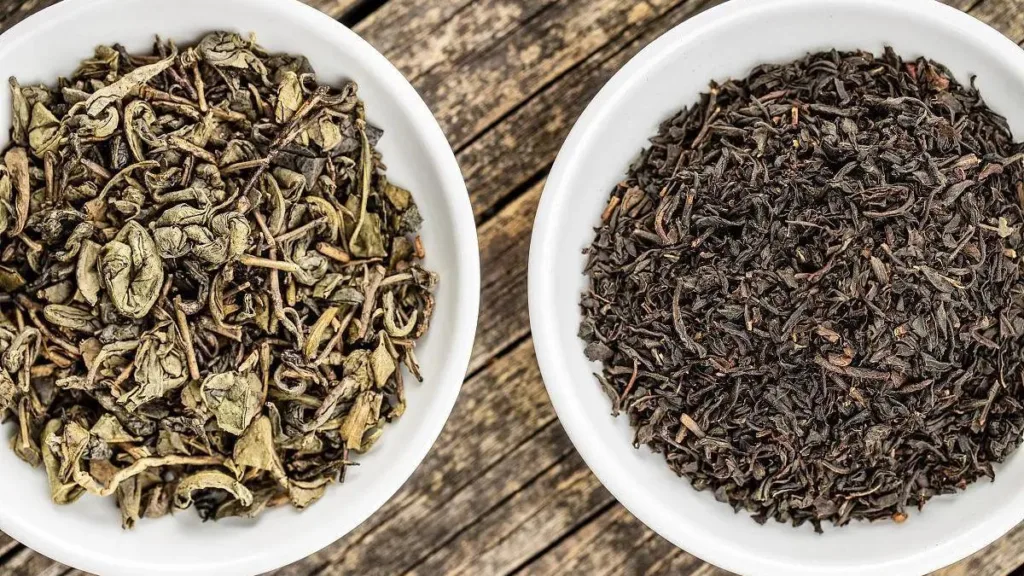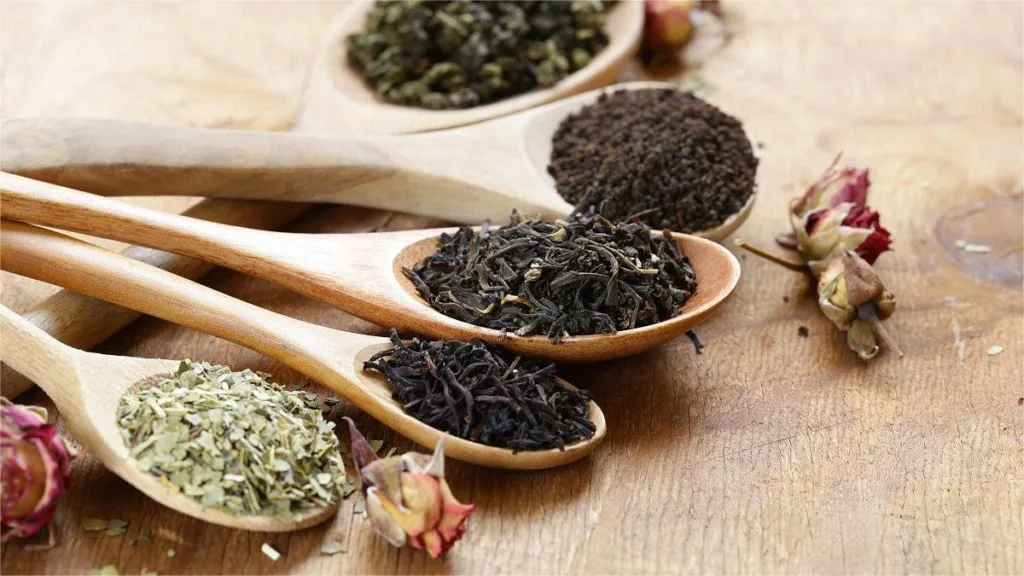Tea is a common natural beverage that not only provides a refreshing and energizing experience but also offers various health benefits. Some types of tea possess anti-inflammatory and antibacterial properties, which can alleviate inflammation, combat bacteria, and promote overall well-being. So, which Chinese teas are known for their anti-inflammatory and pain-relieving properties? Let’s delve into a detailed introduction to these teas.
Green Tea:
- Green tea leaves contain fluoride and tannins, which have anti-inflammatory, hemostatic (bleeding control), and pain-relieving properties. Rinsing your mouth with leftover green tea after drinking can help prevent cavities, treat oral health issues, and combat bad breath. It also contributes to whitening and strengthening teeth.
- Tannins in green tea possess coagulation properties, can kill bacteria, and have anti-inflammatory effects. Boiling used green tea leaves in water and applying them externally can be effective in treating redness and swelling of sores and boils. In the case of minor burns, a paste made by mixing finely ground roasted tea leaves with vegetable oil can be applied to the affected area for anti-inflammatory and pain-relieving effects.
- The tannic acid in green tea leaves has a noticeable killing effect on the thread-like fungi responsible for athlete’s foot. If individuals with athlete’s foot use green tea residue water to wash their feet every night, it generally takes only a few times to cure the condition. During summer when people often suffer from sweaty and smelly feet, placing dried tea residue inside shoes can absorb the sweat and significantly reduce foot odor.
- Green tea residue contains substances such as tannic acid, which have antibacterial, anti-inflammatory, and skin-moisturizing properties. Regularly rubbing your body with tea residue water can eliminate body odor, protect the skin, making it glossy, smooth, and soft, and reduce the occurrence of skin problems. Washing your hands and feet with tea water, including the residue, can help prevent and treat cracks and eczema and alleviate itching.
In terms of detoxification, green tea, chrysanthemum tea, and honeysuckle tea are all excellent choices, and they are readily available and affordable.
In summer, when you want to reduce heat and inflammation, the following teas can be helpful:
- Chrysanthemum Tea: Brewing chrysanthemum flowers creates a fragrant tea that can help cool the body, replenish bodily fluids, dispel wind, moisten the throat, nourish the eyes, and alleviate the effects of alcohol consumption.
- Orange Peel Tea: Utilizing orange peel for tea can capitalize on its ability to soothe the stomach, resolve phlegm, and combat coughs. Brewing orange peel with green tea can help alleviate heat, dissolve phlegm, and provide antimicrobial and anti-inflammatory benefits.
- Coix Seed Tea: Coix seeds are known for their heat-clearing, dampness-draining, and edema-reducing properties. They can be used to treat conditions like joint pain, tonsillitis, parotitis, arthritis, stomachaches, and eczema.
- Three-Flower Tea: A combination of honeysuckle (10g), chrysanthemum (10g), and jasmine (3g) can be steeped in boiling water to create a refreshing tea with anti-inflammatory and detoxifying properties. It can help with headaches, thirst, sore throats, and discomfort.
- White Mulberry Leaf Tea: White mulberry leaves, when brewed into tea, possess heat-clearing, detoxifying, anti-inflammatory, hemostatic, and pain-relieving properties. This tea can be used to alleviate various conditions, including postpartum joint pain, tonsillitis, parotitis, arthritis, stomachaches, and eczema. It’s crucial to use it under the guidance of a healthcare professional, as proper dosages are important.
- Perilla Leaf Tea: Perilla leaves have antimicrobial and anti-inflammatory properties and are known for treating wind-heat colds, enhancing the body’s immune system. You can use perilla leaves for cooking, sun-drying and consuming, or making them into tea.
- Black Tea: Black tea contains an abundance of polyphenols, carbohydrates, amino acids, and pectin, along with a specific substance called theaflavins, which contribute to its antibacterial and anti-inflammatory properties.
These Chinese teas are renowned for their diverse health benefits, including anti-inflammatory and pain-relieving effects. Whether you’re seeking to reduce inflammation or simply enjoy a comforting and healthy beverage, these teas can be a delightful and therapeutic choice.



